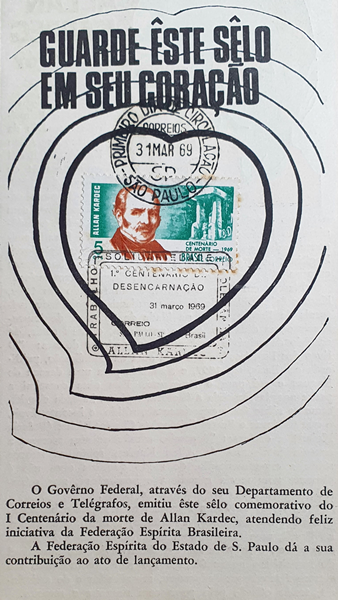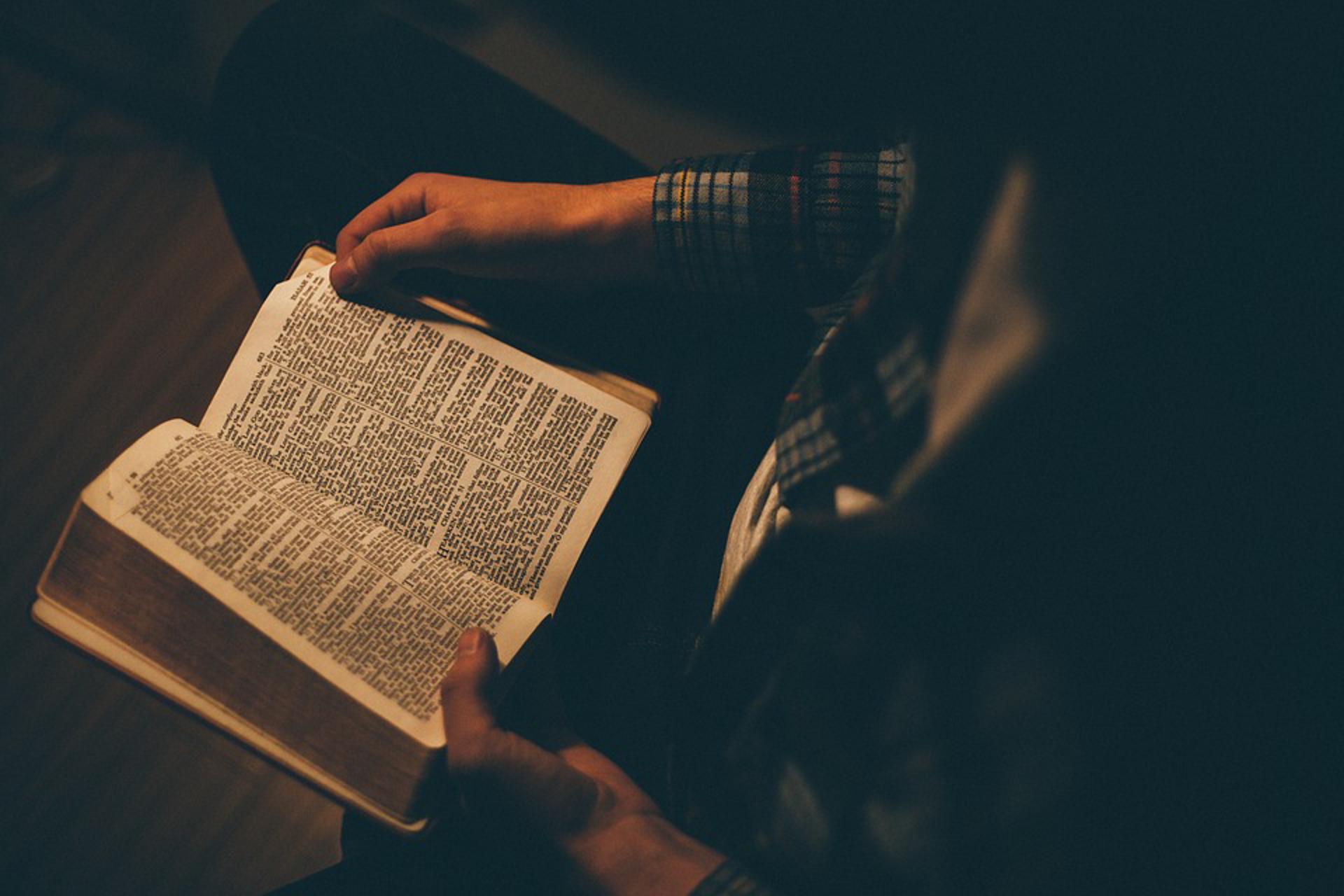Heaven and Hell - Part Second, Chapter II, Happy Spirits
HEAVEN AND HELL
or
The Divine Justice Vindicated in the Plurality of Existence
Concerning
The passage from the earthly life to spirit-life, future rewards and punishments, angels and devils, etc.
Followed by numerous examples of the state of the soul, during and after death.
BEING THE PRACTICAL CONFIRMATION OF "THE SPIRITS' BOOK"
BY Allan Kardec
Translated from the Sixtieth Thousand - By Anna Blackwell [London: Trubner & Co., Ludgate Hill - 1878]
Part Second - Examples
CHAPTER II
[Happy Spirits]
MR. SANSON (II)
(Spiritist Society of Paris, April 25, 1862; after evoking the spirit of Mr. Sanson in the usual manner.)
1. A. Friends, I am here.
2. Q. We are much pleased with the conversation we had with you on the day of your funeral; and as you permit us to talk with you, we shall be very glad to continue our conversation, that we may obtain all the information you are able to give us.
A. I am quite ready to converse with you and am happy to see that you think of me.
3. Q. Whatever can help to enlighten us in regard to the nature of the invisible world is of the utmost importance, both to us, and to all; for it is the false idea which men form to themselves of the other life that usually leads them to skepticism. Therefore you must not be astonished at the numerous questions that we shall have to ask you.
A. I shall not be astonished; and I am waiting to know what you wish to ask me.
4. Q. You have described, with luminous clearness, the passage from life to death; you have told us that, at the moment when the body breathes its last, life breaks down, and the sight of the spirit is extinguished. Is this moment a painful one? Is it attended with any suffering?
A. Undoubtedly it is; for life is a succession of sufferings, and death is the complement of them all. For that reason we feel a violent wrench, as though the spirit had to make a superhuman effort to free himself from his fleshly envelope; it is this effort that absorbs our whole being and makes us lose the consciousness of what we are becoming.
This is not the case in general. Experience shows us that many spirits lose consciousness before death occurs; and that, with those who have reached a certain degree of dematerialization, the separation takes place without any effort.
5. Q. Do you know whether the moment of death is more painful for some spirits than for others? Is it more painful, for instance, in the case of the materialist, of him who believes that everything will be ended for him with the death of his body?
A. Certainly. The spirit who is prepared for death has already forgotten his suffering, or, rather, he is accustomed to it; and the mental quietness with which he sees the approach of death prevents him from suffering doubly, as he would otherwise do, because he knows what is awaiting him. Moral suffering is the most painful of all; and its absence, at the moment of death, diminishes immensely the pain of the separation. He who does not believe in a future life is like a prisoner under sentence of death, whose thought beholds both the gibbet and the unknown.
6. Q. Are there materialists so rooted in their denial of immortality as really to believe, in this solemn moment, that they are about to be plunged into annihilation?
A. There are, undoubtedly, some who believe in annihilation up to their last hour; but, at the moment of the separation, an entire change comes over the spirit’s mind. He is tortured by doubt, and anxiously asks himself what is going to become of him; he seeks for something to cling to, and finds nothing. The separation, in such a case, cannot take place without causing this impression.
A spirit gave us, on another occasion, the following description of the end of the unbeliever: -
“The confirmed unbeliever experiences, in his last moments, all the anguish of the horrible nightmare in which the sleeper seems to be at the edge of a precipice, on the point of falling into the abyss beneath him. He makes the most agonizing efforts to fly from the danger, and he is unable to move; he seeks in vain for something to stay him, some fixed point by which to keep himself out of the terrible void into which he feels himself to be slipping; he tries to call for help and is unable to make any sound. It is under the pressure of this frightful agony that the dying man is seen to writhe in the convulsion of the death-throes, wringing his hands, and gasping out stifled and inarticulate cries, all of which are the certain indications of the nightmare from which he is suffering. In ordinary nightmare, your wakening relieves you of the incubus that was oppressing you, and you rejoice to perceive that you have only been dreaming; but the nightmare of death often lasts for a very long time, even for many years, after the separation has taken place; and the suffering thus caused to the spirit is sometimes rendered still more severe by the thick darkness in which he finds himself.”
7. Q. You have told us that, at the moment of death, you no longer saw, but that you foresaw. By this, we understand you to mean that you no longer saw with your bodily eyes, which is perfectly comprehensible; but we should like to know whether, before the life of your body was entirely extinct, you obtained a glimpse of the spiritworld?
A. That was what I meant to say. The instant of death restores to the spirit his normal clairvoyance; the bodily eyes no longer see, but the spirit, whose sight is far more penetrating, immediately discovers around him an unknown world, and this reality, becoming suddenly visible to him, gives him – though only momentarily, it is true – a sense of intense delight, or of inexpressible distress, according to the state of his conscience and the remembrance of his past existence.
The spirit is here alluding to the instant preceding the loss of consciousness, which explains his saying “though only momentarily;” for the same agreeable or disagreeable impressions are again perceived by the spirit on his awaking in the other life.
8. Q. Be kind enough to tell us what you saw at the moment when your spirit-eyes were opened to the light of the other world. Describe to us, if possible, the aspect of the objects that then presented themselves to your sight.
A. When I came to myself and was able to look about me, I was dazzled, and could not understand what I saw; for the mind does not regain clearness instantaneously. But in proportion as I recovered the use of my faculties, I perceived that I was surrounded by a numerous company of friends, among whom were all the spiritprotectors who are in the habit of coming to our séances; they were rejoicing in my arrival, and welcomed me with smiles. I felt myself to be in the enjoyment of the plenitude of health and strength, and was able to accompany them, joyously and without effort, through the vast expanse of space around me. But what I saw, in my journey through immensity, cannot be described in human speech. I shall come to you again, nevertheless, to speak with you more at length of my happiness, within the limits of what it is permissible for us to say. Be quite sure of one thing, viz., that what you understand by happiness, in your world, is a fiction. Live wisely, innocently, in the spirit of charity and of loving-kindness; and you will have prepared for yourselves impressions that your greatest poets would be powerless do describe.
Faire tales are, undoubtedly, full of absurdities; but may they not be, in some of their details, an imperfect reflex of what goes on in the world of spirits? Does not Mr. Sanson’s recital of his experiences resemble the story of the beggar who, having gone to sleep in a poor and dingy hut, finds himself, on awaking, in a splendid palace and surrounded by a brilliant court? A Time of New Hope and Trials.
9. Q. Under what aspect did the spirits appear to you? Was it under the human form?
A. Yes; our spirit-friends have always told us, upon the earth, that they retain, in the spirit-world, the transitory form which they wore in their last earthly life; and this is true. But what a difference between the clumsy human machine, that drags itself along, so heavily, upon the earth, with its load of sorrow and trials, and the wondrous fluidicity of the spirit-bodies! There is no ugliness among them, for their features have lost the expression of harshness which is characteristic of the human race. Their beauty may truly be termed beatific, and their movements are the perfection of elegance and grace. The language of spirits has intonations unknown to human speech; and their glance has the depth and brilliance of a star. Try to imagine al the beauty that can be built up by the power of the Supreme Architect, and you will have formed to yourselves some faint idea of the appearance of spirits.
10. Q. How do you appear to yourself? Do you seem to yourself to possess a form that is limited and circumscribed, although fluidic? Do you feel that you have a head, a trunk, arms, and legs?
A. Spirits, having preserved a form which resembles the human, but idealized, divinized, have, undoubtedly, all the members of which you speak. I feel myself perfectly in possession of a form and fingers; for we can, by our will, render ourselves visible to you, or press your hands. I am close to you, and I have pressed the hand of each one of you, without your being aware of my doing so; our fluidicity enables us to be everywhere without occupying any point of space, without causing you any sensation, if such be our desire. At this very moment, your hands are folded, and my hands are in yours. I say to you “I love you!” yet my body takes up no place, the light passes through it; and what would seem to you to be a miracle, if you could see it, is, for spirits, the continuous action of every instant.
Spirit-sight has no relation to human sight, just as the spirit-body has no real likeness to the human body, for it is, in generals and in details, absolutely different from the latter. The perspicacity of a spirit may be called divine, in this sense, viz., that it extends to everything, even to the divining of your thoughts; and his form is so completely under his control that he can, when he chooses to do so, assume the appearance best calculated to recall him to your remembrance; but in point of fact, the advanced spirit, who has finished with the trials of an earthly life, has an affection for the form which has brought him a step forward on the upward road.
11. Q. Spirits are of no sex; but as, only a few days ago, you were a man, is there, in your present state, more of the masculine nature than of the feminine? And how is it, in this respect, with spirits who have been separated for a longer time from their earthly body?
A. For us, there is neither “masculine” nor “feminine;” there is no procreation among spirits. Spirits are created by God; since, for the carrying out of His marvelous designs, He has willed that they should reincarnate themselves upon the earth, it was necessary to provide them with the means of effecting the reproduction of fleshly bodies through the agency of males and females. But you can understand, without its being necessary to enter into any explanation of the matter, that there can be no sex in spirits.
It has always been asserted by spirits that they are of no sex, because the sexes are only needed for the reproduction of bodies, and as spirits do not reproduce themselves, sex would be useless to them. Our question was intended, not to draw forth a fresh assertion of this fact, but to ascertain whether, after a death so recent as that of Mr. Sanson, the spirit retained, in this respect, any impression of his terrestrial state. Spirits who have reached a certain degree of purity are perfectly aware of their non-sexual nature; but, among those of lower degree, who are not yet dematerialized, there are many who believe themselves to be still what they were upon the earth, to have preserved the same passions and the same desires, and imagine themselves to be still men or women; hence it is that some of them have declared that spirits are of one or other sex. The contradictions observable in the statements of spirits are due, in part, to the different degrees of advancement at which they have arrived, in part to pre-conceived ideas, and the want of careful examination, on the part of those who question them.
12. Q. How does our present séance appear to you? Do we appear, to your new perceptions, the same as we did when you were among us? Can you see each of us as clearly, as distinctly, as formerly?
A. Much more clearly, for I can read the thoughts of each, and I am delighted with the excellent impression that is caused me by the good intentions of all those who are here assembled. I wish that the same cordial understanding could be arrived at, not only in Paris, by the union of all the spirits circles, but also throughout the whole France,* too many of whose spiritist societies are separated by jealousy, excited by the machinations of quarrelsome spirits who take pleasure in discord and disunion, whereas spiritism should be synonymous with the complete and absolute forgetfulness of the ME.
13. Q. You say you read our thoughts; can you explain to us the way in which this perception of thought is effected?
A. It is not easy to do so; to explain to you the prodigious faculty of the spirit-sight, it would be necessary to begin by giving you the knowledge of a whole arsenal of agents unknown to you, and by rendering you as learned as we are, which could not be done, because your faculties are limited by your physical organism. Patience! Try to become good, and you will attain to this knowledge. As yet, you have only the amount of knowledge which corresponds to you degree of advancement; in course of time, you will be as we are. Try to die the death of the righteous, that so you may be able to learn much in the other life. Let curiosity – which is the stimulus of the reflective mind – lead you on gently to the passage which will procure for you the satisfaction of all your desires for knowledge, past, present, and future! Meanwhile, let me say (by way of replying, as well as I can, to the question you have just addressed me), that the air by which you are surrounded, impalpable as we are, takes the impress of your thought; every breath you exhale is, so to say, a page on which your thought is written; and all those pages are read, and commented upon, by the spirits who are incessantly about you, messengers of a divine telegraphy which nothing escapes.
• At the time of his decease, ALLAN KARDEC was engaged in elaborating the bases of a General Association, having its seat in Paris, and to which all the Spiritist Societies of Paris, of France, and of all other countries, were to be affiliated. – TR.
Source: Published Text in The Spiritist Messenger, n. 103 and 104, February 15th, 2009








